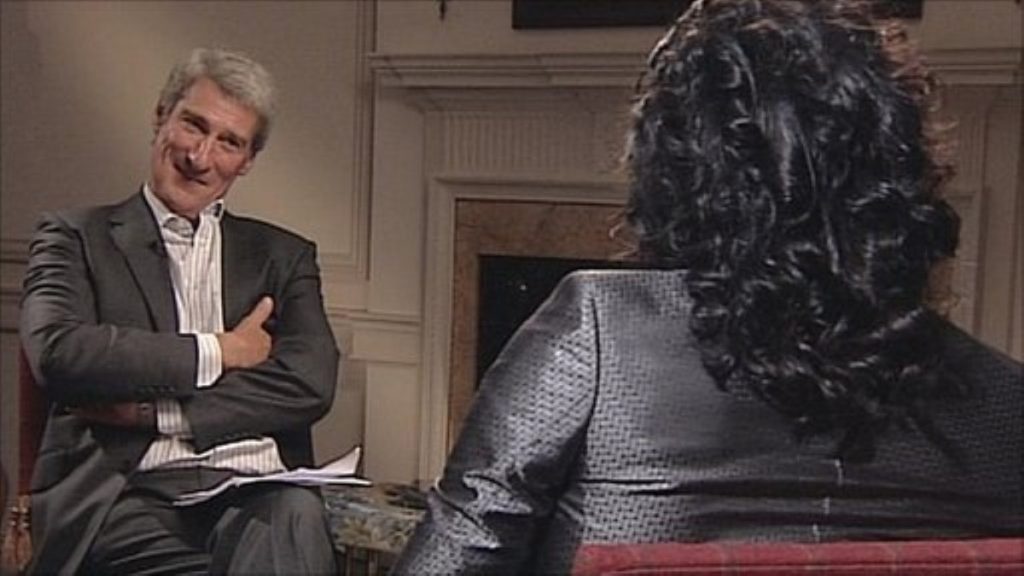The Week in Review: Unlikely lads Russell Brand and John Major speak truth to power
Most of what happens inside Westminster goes almost totally unnoticed outside. Debates about GDP, Europe, and even the deficit may fascinate MPs and journalists, but they largely bore the British public.
So when Russell Brand called for socialism and a workers’ revolution this week, he was predictably mocked and dismissed by most MPs and journalists. Who was this millionaire actor to lecture us about ordinary people, they asked? Who is this overpaid comedian to tell people not to vote, they wondered?
Asked onto Newsnight to discuss this, he was ridiculed and patronised by Jeremy Paxman whose face was locked in a smug grimace throughout the interview.
And yet Brand’s articulate and often angry comments about British politics have since been watched by millions around the world. His New Statesman article has also found an audience few other opinion pieces will ever reach. His dismissal inside Westminster has been in inverse relation to his reception outside it.


Now you don't have to like Brand personally. You may, like me, find his sub-Kenneth Williams humour a turn off. But his comments this week and the reaction they have stirred say everything you need to know about British politics.
Participation in electoral politics remains in serious decline. Turnout in the last three general elections was the lowest in our history and membership of the three main political parties has dwindled to the size of a small seaside town.
So when Russell Brand says he can’t see the point in voting, he’s actually far closer to the core of British opinion than most Westminster villagers will ever be.
The second unlikely oracle to appear this week was John Major. The former Conservative prime minister used his speech to the parliamentary press gallery to urge David Cameron to tackle the big six energy companies and stand up for "people not institutions".
"Once you get away from Whitehall and Westminster, politics begins to look very different," Major told a room full of open-mouthed lobby journalists.
"The public has become largely detached from politics," he said, adding that politicians should "focus on issues which actually worry people in their daily lives".
"If we Tories navel gaze and only pander to our comfort zone, we will never win general elections. All the core delivers is the wooden spoon," he added.
To most people this will all read as a statement of the bleeding obvious, but inside Downing Street it was received like the ravings of a left wing revolutionary. A spokesman described his intervention as "interesting" which roughly translates as "lunatic", while David Cameron was thrown into having his worst Commons appearance since he first became leader.
Cameron's struggles during Wednesday’s PMQs were entirely avoidable. After several weeks of debate about energy prices, he really should have found a decent response. But rather than deal with the issue, he decided to ignore it. Rather than win the argument, he just hoped it would go away.
"The prime minister said that anyone who wanted to intervene in the energy markets is living in a Marxist universe," Miliband began.
"Can he tell the House how he feels now that the red peril has claimed John Major?”
In just one simple question Miliband shattered the entire line of attack the Conservatives have built up against him over the past three years.
Ever since Miliband became leader, the debate in Westminster has revolved around the idea that Cameron is on the political 'centre ground' while anyone to the left of Tony Blair is a dangerous Marxist moonbat. Major's intervention this week, brilliantly skewered this for the nonsense it really is.
The sentiments and ideas expressed by Russell Brand and John Major this week should deeply worry Cameron.
In order to win the next general election, Cameron needs to convince people that he is on their side and understands, or at least does not dismiss their concerns. Seven years after he became leader, he appears as far away from realising that as ever.












